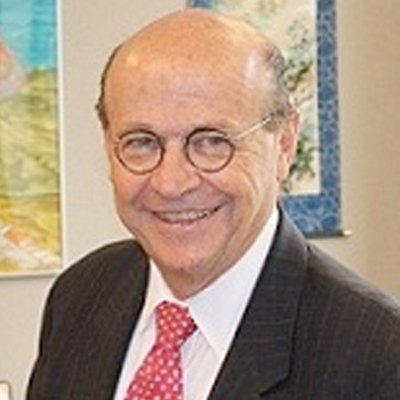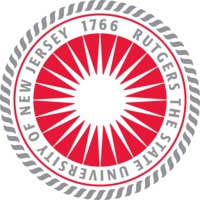Automating auditing methods to perform control and risk assessments for business processing systems
With the progressive automation of business processing systems, their transparency for examination has been substantially reduced. Methods are needed to assure society that processes are adequate, anomalies are minimal, and cyber threats are under control. Prof. Miklos Vasarhelyi, KPMG Distinguished Professor of Accounting Information Systems at Rutgers University, brings modern analytic and IT technology to auditing and monitoring to assure that financial statements and systems in companies are fairly represented. By automating methods to perform auditing activities like control and risk assessments on a frequent basis through continuous auditing, Prof. Vasarhelyi provides key breakthroughs in keeping real-time auditing methods more efficient, transparent, and accurate, and works hard at facilitating organizations to adopt them.
Continuous auditing research was first developed by Prof. Vasarhelyi himself at the Bell Laboratories in 1986-1990 to assess the correctness of AT&T’s billing systems. At that time, auditing was still being developed as a manual process; continuous auditing was not recognized as important for about a decade. Prof. Vasarhelyi and his team, however, continued to develop methodologies for continuous and automated assurance of organizations for the past 20 years. Now, in the world of big data and highly integrated systems, continuous auditing will be the only feasible way to provide assurance and bring auditing to a more predictive and automated domain, and leading professional organizations in accounting have already published studies and guidelines for its use. Prof. Vasarhelyi is therefore a true pioneer in the field, chairing over 40 dissertations and working with KPMG, one of the Big Four auditors, the largest private bank in Brazil, and other organizations to provide analytics and statistics for business processing systems. Professor Vasarhelyi leads the CarLab (Continuous Audit and reporting Laboratory) with a group of about 35 researchers.
Current research includes:
- Continuous data level assurance (CDA) and exception reporting: The traditional form of continuous audit (Vasarhelyi & Halper, 1991) initially performed at AT&T by the Bell Laboratories compares expected models of performance to actual data extracted directly from corporate data stores. These are compared and if significant differences are found alarms are issued. This approach has been used for fraud and anomaly detection. More recent work develops sophisticated data-based normative models for standards of performance and even “predictive” models for filtering transactions prior to execution (preventive audit).
- Continuous control monitoring (CCM) in ERPs (e.g. SAP and Oracle), and calling attention to exceptions: Based on work performed with Siemens a control baseline comparison methodology has been developed. Dr. Vasarhelyi’s current work manages to automate 63% of the auditor actions in an audit action sheet. There is a tremendous need for increasing this percentage by automating more functions and reducing the scope of tests, as the control monitoring is daily.
- Continuous risk monitoring and assessment (CRMA): This is the most incipient of the three areas. Proposed in 2010, only two experiments have been performed but shows tremendous potential in particular with the PCAOB pressure towards a risk based audit. It aims to monitor risks of the process in three dimensions: operations risks, environmental risks, and “black swans”. (Moon, 2015)
Bio
Prof. Miklos A. Vasarhelyi is the KPMG Distinguished Professor of Accounting Information Systems and serves as Director of the Rutgers Accounting Research Center (RARC) & Continuous Auditing & Reporting Lab (CAR Lab). He is credited with developing the original continuous audit application and is the leading researcher in this field. At Rutgers Business School, Prof. Vasarhelyi heads the Continuous Auditing and Reporting Laboratory, which is working on projects for such leading companies as Siemens, KPMG, Procter & Gamble, AICPA, CA Technologies and Brazil’s Itau-Unibanco. He also serves as a technology consultant for AT&T Laboratories.
Prof. Vasarhelyi, who received his Ph.D. in Management Information Systems from UCLA, has published more than 200 journal articles, 20 books, and directed over 30 Ph.D. theses. He is the editor of the Artificial Intelligence in Accounting and Auditing series and the Journal of Information Systems.
The professor has also taught executive programs on electronic commerce to many large international organizations, including GE, J&J, Eli Lilly, Baxter, ADL, Volvo, Siemens, Chase Bank, and AT&T.
He received his MBA from Massachusetts Institute of Technology and earned a Bachelor’s of Science degree in economics and electrical engineering from the State University of Guanabara and the Catholic University of Rio de Janeiro.
Born in Hungary, Prof. Vasarhelyi moved to Brazil with his family when he was two years old. Since he was young he liked to build and assemble things, and eventually studied electrical engineering and economics simultaneously. He then came to the US when he was accepted to MIT to improve his engineering and management skills. After this he served in the faculties of Catholic University of Rio de Janeiro, USC, and Columbia University. He was then in Bell Labs for four years, where he discovered the idea of monitoring live systems. This idea took about 10-15 years to catch on, but now most people realize that real-time monitoring systems are the way of the future. Dr. Vasarhelyi is thus pioneering a new stage of the web by monitoring systems that have automated analytics, usually by importing technology from other fields.
An influential figure both nation- and worldwide, Dr. Vasarhelyi has traveled all over the world and will be holding the 35th continuous auditing symposium. Outside of his research, he likes to spend time with his granddaughter and his wonderful dog. He also speaks five languages including Portuguese, Spanish, French, English, Hungarian, and a little bit of Italian and a little bit of German.
For more information, http://raw.rutgers.edu
Publications
Videos
Awards
American Association Outstanding Educator Award, Aug. 2013
Outstanding Educator Award, Aug. 2011
by AAA Strategic Emerging Technologies Section
Joseph J Wasserman Award, June 2011
ISACA New York Metropolitan Chapter
CPA Australia Research Lecture, Medal from University of Melburn, Oct. 2010
Award for "Notable Contribution to the Literature for Continuous Audit of Online Systems", Aug.2010
by American Accounting Association
The Officer’s Cross of the Order of Merit of the Republic of Hungary, the President of the Republic of Hungary, 2005
Professor Honoris Causa, 2005
Babes Bolyai University


